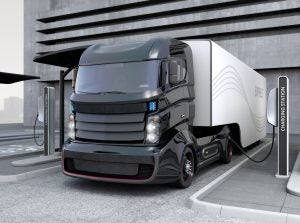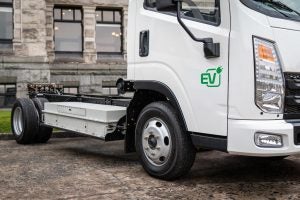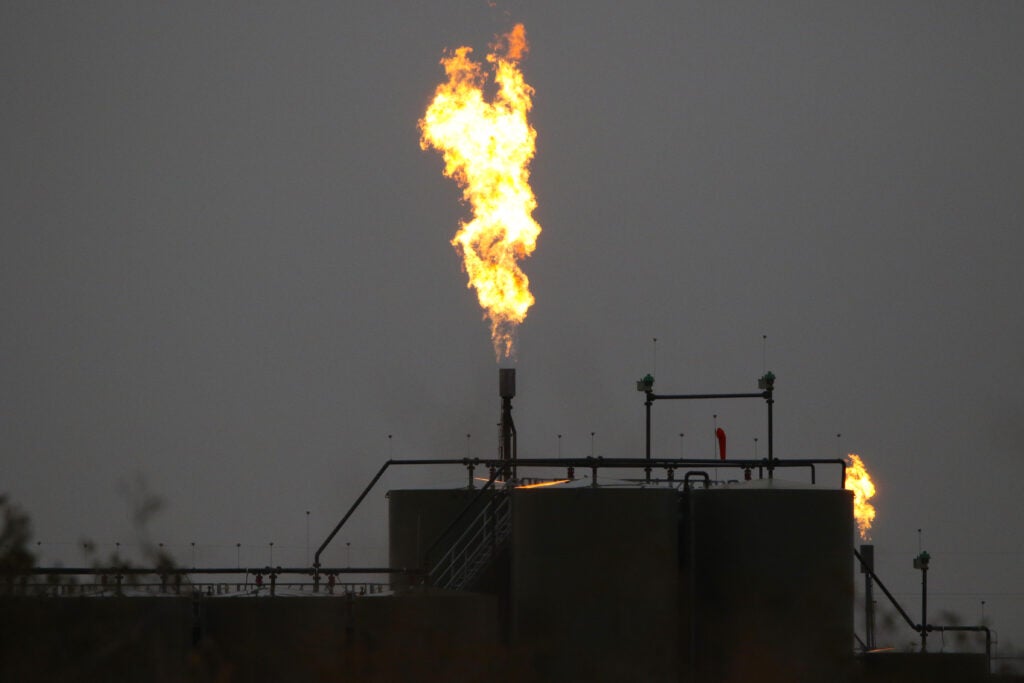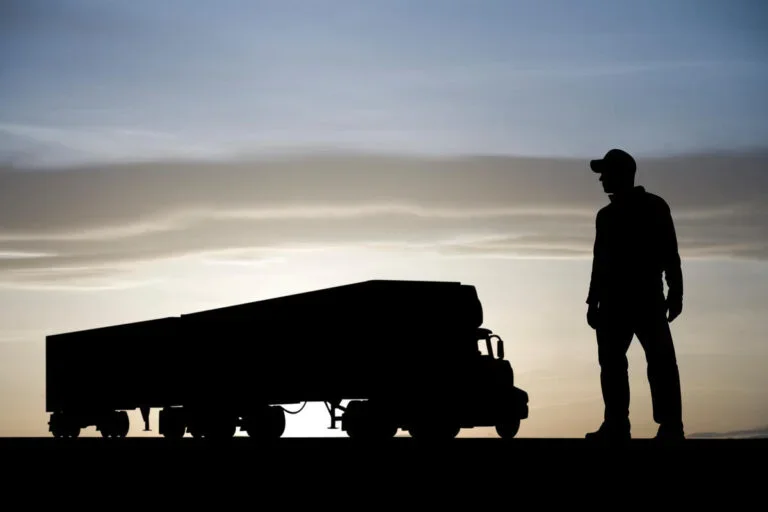Texas’ primary oil and gas regulator, the Texas Railroad Commission, took the unfortunate — though not surprising — step last month of requesting legal action against EPA’s recently finalized commonsense methane rules. This is unfortunate because, once implemented, these rules will protect public health, limit climate change and energy waste. It is not surprising because the RRC (Texas’ oddly named oil and gas regulatory agency) has shown little interest in trying to rein in Texas’ massive problem with oil and gas methane pollution. Texas emits more oil and gas methane pollution than any other state. Despite repeated calls for more oversight from the state agency, the RRC continues to regularly approve permits to flare natural gas, a leading cause of methane pollution.
Energy Exchange
Why Texas’ attempt to delay commonsense methane protections will only shoot itself – and the US oil and gas industry – in the foot.
Zero-emission trucks are taking center stage at MCE 2023. Here’s what you should know.
As hundreds of fleet professionals from across the U.S. gather in Austin, TX this week for the American Trucking Association’s annual Management Conference and Exhibition, some may be arriving with a feeling of uncertainty about the pace of transition to zero-emission trucks.
While fleet managers have more tools at their disposal than ever before, the ambition of their efforts has grown significantly, too. Thus, it can feel as challenging as ever to make progress on reducing pollution from trucks at a pace that meets the urgent health and climate imperative we all face.
Fleets know they need to drive toward a zero-emission future. Yet, there is no one-size-fits-all pace, and there are as many paths as there are fleets. But long-term, performance-based medium and heavy-duty emission standards can help.
Texas creates task force to evaluate charging needs for ZEV trucks
 Texas will create an interagency task force to evaluate infrastructure charging and capacity needs for medium- and heavy-duty vehicles, a tremendous step forward in the state’s ongoing efforts to support the zero-emission vehicle industry.
Texas will create an interagency task force to evaluate infrastructure charging and capacity needs for medium- and heavy-duty vehicles, a tremendous step forward in the state’s ongoing efforts to support the zero-emission vehicle industry.
The taskforce is the result of a rider adopted in the state budget, which was signed into law earlier this month. The rider requires the Texas Department of Transportation to coordinate with the Texas Commission on Environmental Quality, the Public Utility Commission and the Electric Reliability Council of Texas to “evaluate how to deploy zero-emission medium-duty and heavy-duty vehicle charging infrastructure to best support growth in that market” in a way that will “maximize competitiveness, innovation, and efficiency, while also maintaining the integrity and cost-effectiveness of the Texas grid.”
Texas awards $8 million in state incentives for electric trucks
 The Texas Commission on Environmental Quality has awarded $8.2 million in state incentives to help companies operating in Texas purchase 51 electric trucks.
The Texas Commission on Environmental Quality has awarded $8.2 million in state incentives to help companies operating in Texas purchase 51 electric trucks.
The announcement is a win for communities, the climate and the companies who secured the historic funding opportunity. The announced funds should signal to companies across the country that clean fleet investments are now part of the package of economic incentives that make Texas such an attractive place to do business.
The power grid and disinformation
 Texans know better than to believe the lies. But, whenever severe weather strikes the state and the isolated electric grid is imperiled, they’re always fed them: “Green energy” is offered up as the ultimate scapegoat, facts be damned.
Texans know better than to believe the lies. But, whenever severe weather strikes the state and the isolated electric grid is imperiled, they’re always fed them: “Green energy” is offered up as the ultimate scapegoat, facts be damned.
Houston workshop lays foundation for the road to ZEV trucks
 Last month, EDF co-hosted a workshop in Houston on the state of zero-emission heavy-duty vehicles in Texas. Partnering with Evolve, the Houston-Galveston Area Council and Port Houston, we met at the NRG Center with dozens of industry experts, government officials, fleet managers and drivers to talk about the economic and environmental opportunities that transitioning to zero-emission medium- and heavy-duty vehicles offers for Texas. At the end of the workshop, participants were able to enjoy a ride-along with the latest Nikola ZEV truck.
Last month, EDF co-hosted a workshop in Houston on the state of zero-emission heavy-duty vehicles in Texas. Partnering with Evolve, the Houston-Galveston Area Council and Port Houston, we met at the NRG Center with dozens of industry experts, government officials, fleet managers and drivers to talk about the economic and environmental opportunities that transitioning to zero-emission medium- and heavy-duty vehicles offers for Texas. At the end of the workshop, participants were able to enjoy a ride-along with the latest Nikola ZEV truck.











